- HOME
- >
- 재단도서
- >
- 한국문학 번역ㆍ연구ㆍ출판지원
한국문학 번역ㆍ연구ㆍ출판지원
-
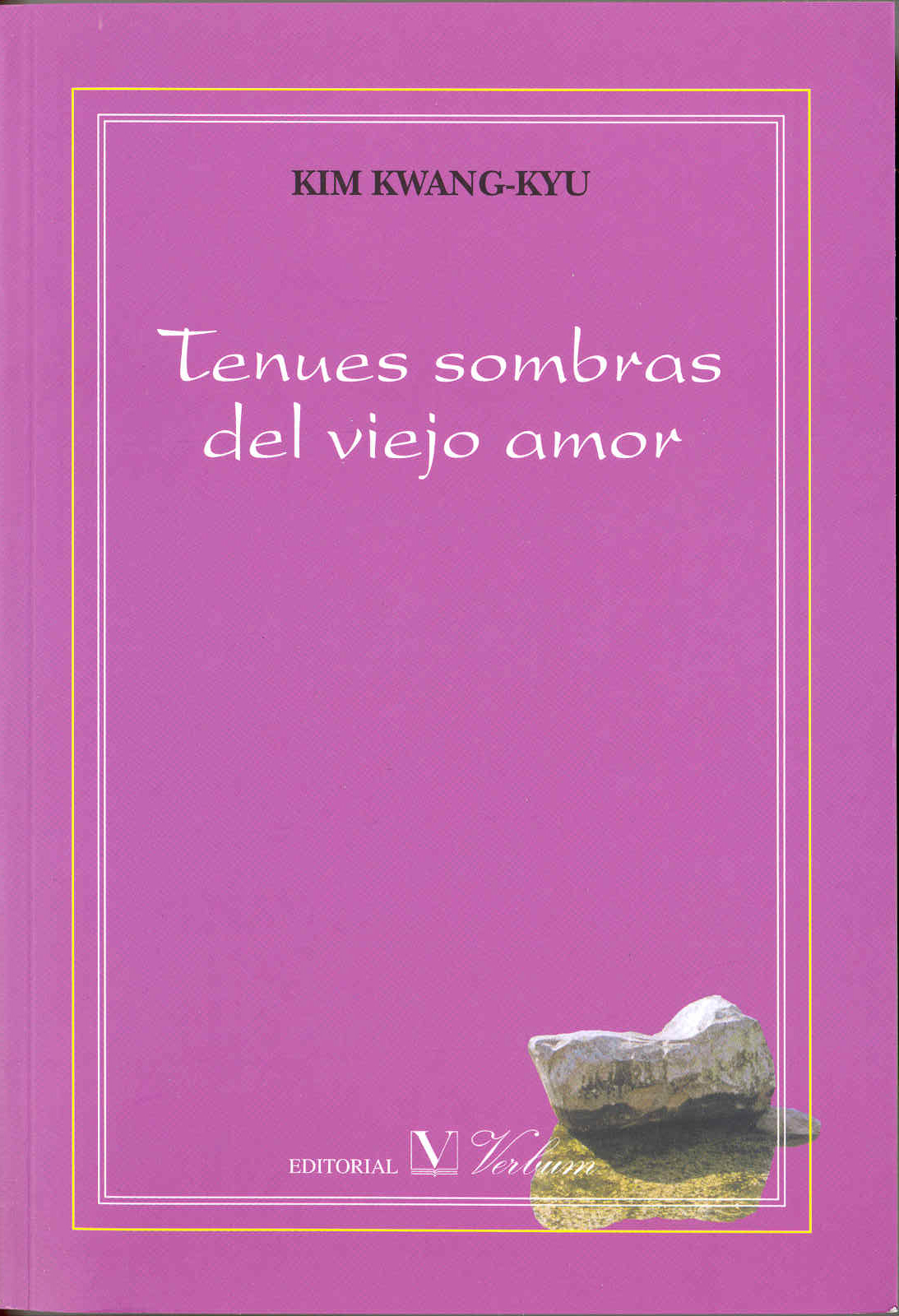
Poetry시 | 희미한 옛 사랑의 그림자(김광규 시선집)(前 한국문학 번역지원사업 지원) Teunues sombras del viejo amor
저자 김광규 ㅣ 역자 이성훈, Tobias Burghardt토비아스 부르크하르트,Juana Burghardt후아나 부르크하르트
출판사 Spain스페인 베르붐(Verbum) ㅣ 출판일 2005(2002 지원)
Tenues sombras del viejo amor 희미한 옛사랑의 그림자
김광규 作/ 이성훈·토비아스 부르크하르트,후아나 부르크하르트 共譯/ 스페인 Verbum 刊
11회 대산문학상을 수상하기도 한 시인이 1988년에 발표한 시집의 스페인어 번역판이다. 이 시집의 제목인 ‘희미한 옛사랑의 그림자’는 원래 외국 가요를 국내에서 번안한 것인데, 시인은 대중들에게 널리 알려진 노래의 제목을 시의 제목으로 채택함으로써 이 시가 껴안고 있는 기성세대와 소시민 계층에 대한 회한의 심정을 독자들에게 효과적으로 전달될 수 있도록 하였다. 제목 자체에서 이미 지나가 다시는 돌아올 수 없는 젊은 날의 열정과 추억에 대한 안타까운 그리움과 아련한 슬픔이 전해져 온다. 한양대 독문과 교수로 재직 중인 시인은 독일, 오스트리아 등지에서 활발하게 교류 활동을 하고 있는데 스페인어권에서는 처음 번역, 소개되는 것이다. 2002년 지원.
Teunues sombras del viejo amor (Faint Shadows of Love)
Kim Kwang-Kyu(Author)/Lee Seong-Hun, Tobias Burghardt, Juana Burghardt(Translator)/ Spain: Verbum, 2005
The title Faint Shadows of Love comes from a popular foreign song. By adapting the title of a widely known song for his own poem, the author effectively communicates his regret for the established generation and the petite bourgeois. Also, the title itself suggests heartbreaking sorrow and longing for the irrevocable passions and memories of youth. Kim Kwang-Kyu possesses skill in drawing for us in detail, our twisted portraits as adults stained with modern life. Moreover, the author accurately condenses and shows the larger, and more complex, frame of reality that force such distortion and paralysis of mind. -
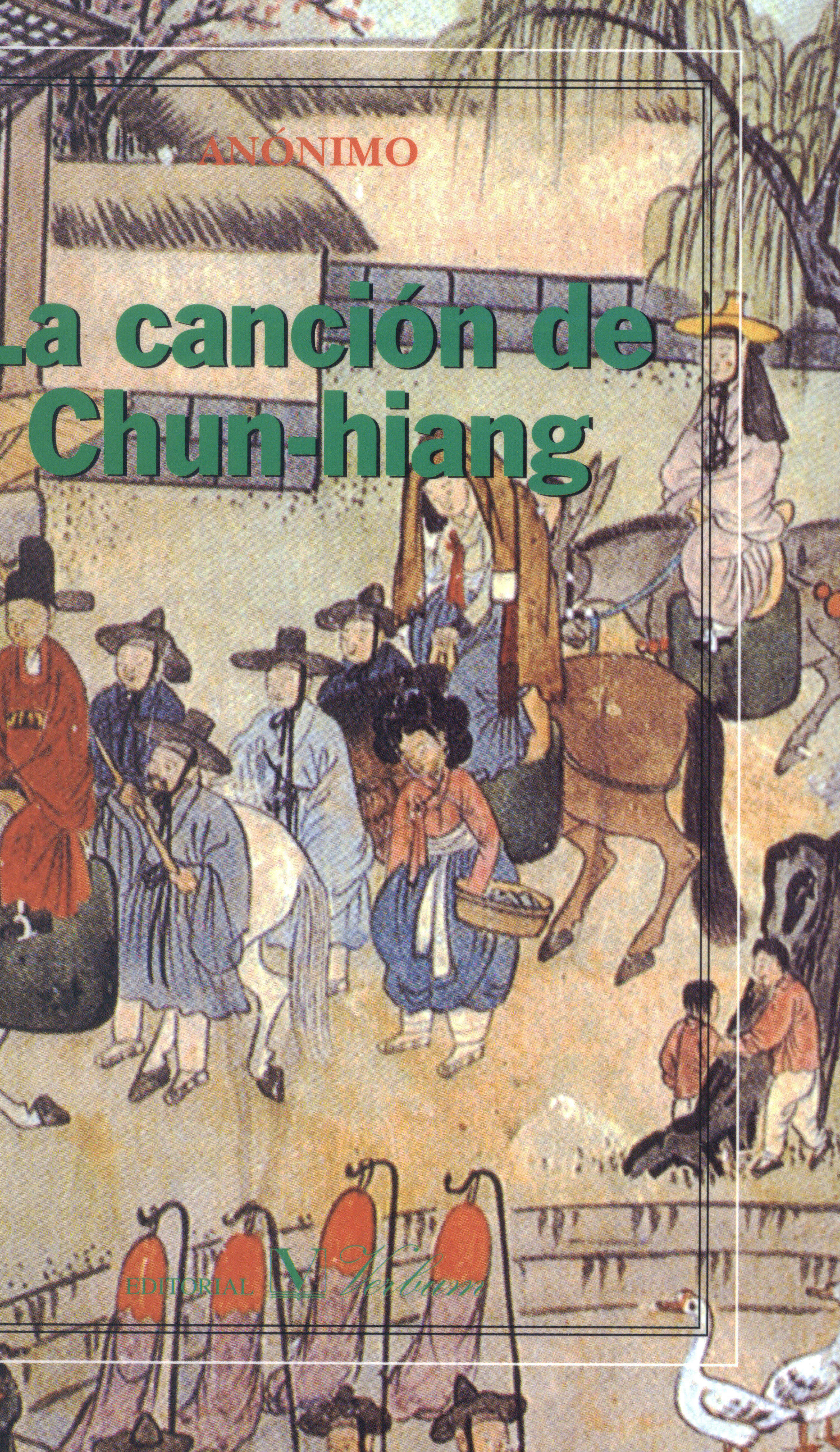
Classic고전 | 춘향전(前 한국문학 번역지원사업 지원) La canción de Chun-hiang
저자 ㅣ 역자 최낙원, Esther Torres Simón에스테르 토레스 시몬
출판사 Spain스페인 베르붐(Verbum) ㅣ 출판일 2007(2002 지원)
한국 고전소설의 백미 ‘춘향전’이 스페인어로 번역 출간됐다. 전북대 인문대 스페인·중남미어문학과 최낙원교수는 완판 ‘열녀춘향수절가’를 5년여의 작업 끝에 ‘라 칸시온 데 춘향(춘향가)’이라는 제목으로 스페인 마드리드의 베르붐 출판사에서 출간했다. 이 학과 객원교수를 지냈던 스페인의 에스테르 토레스 시몬 씨와 공동 번역했다. 최 교수는 춘향전 완판본과 주해를 붙인 ‘대교 춘향전’을 주 텍스트로 삼았다. 그는 춘향전을 스페인과 중남미 국가 등 20여 개국 4억 명이 사용하는 스페인어로 번역함으로써 우리 문학의 우수성을 널리 알릴 수 있게 됐다며 스페인어권 국가에서 한국어 강의 교재로도 사용될 수 있을 것이라고 기대했다.
-
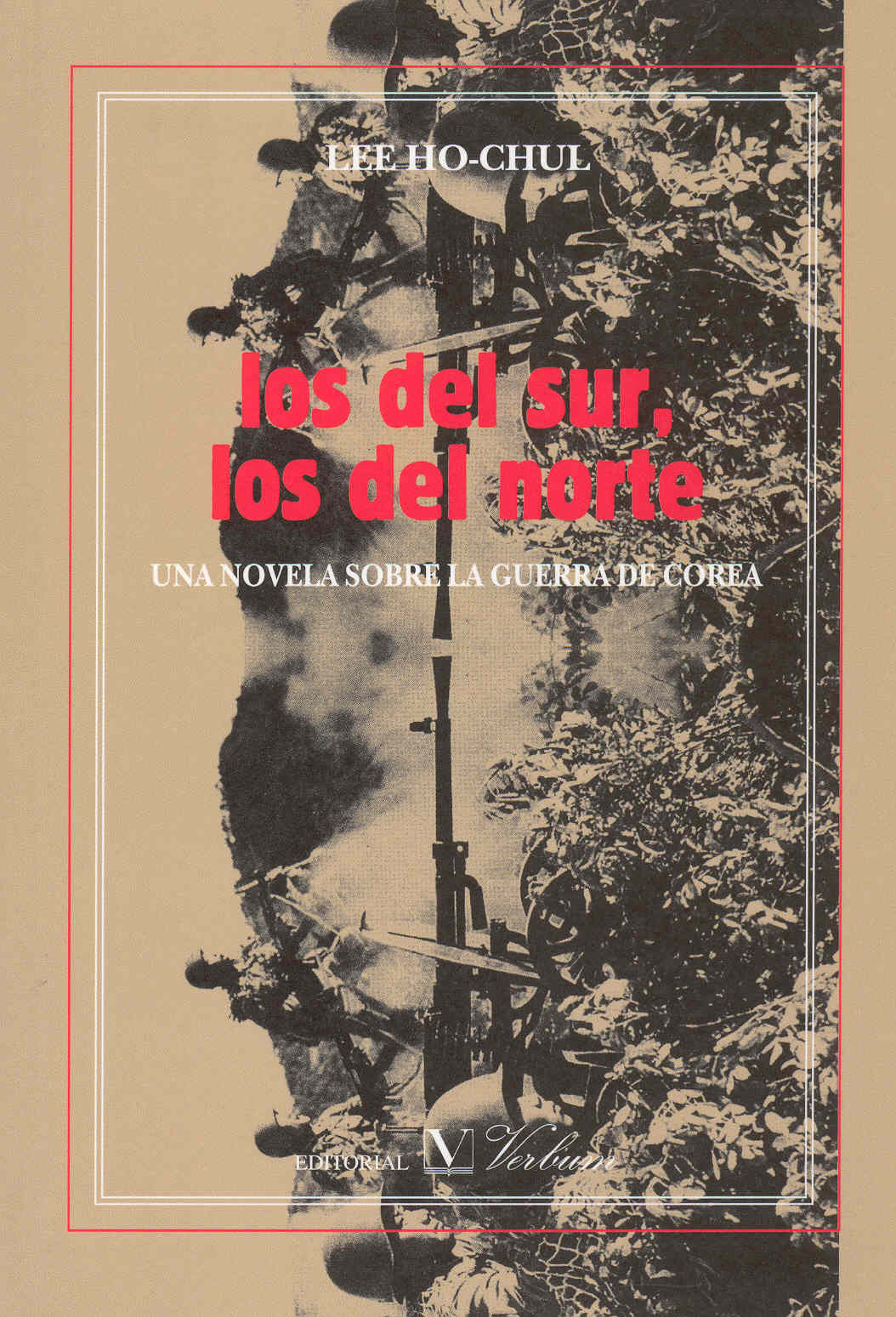
Fiction소설 | 남녘사람 북녁사람(前 한국문학 번역지원사업 지원) Los del sur, los del norte
저자 이호철 ㅣ 역자 유해명, Jorge Orendain호르헤 오렌다인
출판사 Spain스페인 베르붐(Verbum)(前 한국문학 번역지원사업 지원) ㅣ 출판일 2004(2001 지원)
분단의 비극을 다룬 여러 현대소설들 중에서도 가장 뛰어난 작품 중 하나로 평가받는 이호철의 『남녘 사람 북녁 사람 Los del Sur, Los del Norte』이 대산문화재단(이사장 신창재)의 번역지원을 받아 스페인 베르붐(Verbum) 출판사에서 출간되었다. 『남녘 사람 북녁 사람』은 분단의 아픔과 이산가족 문제 등 남북문제를 작품화해 온 대표적 분단작가 이호철의 연작소설이다. 1996년 대산문학상 수상작이자 작가의 대표작으로도 손꼽히는 이 소설은 「남에서 온 사람들」「칠흑 어둠 속 질주」「변혁 속의 사람들」「남녘 사람 북녁 사람」 등 4편의 연작단편으로 구성돼 있는데, 작가가 19세이던 1950년 인민군으로 징병됐다가 국군에 포로로 잡히고, 다시 풀려난 체험을 토대로 해 전쟁의 극한 상황과 남북 이데올로기의 대립 속에 상실돼가는 인간의 모습을 다루고 있다. 인민군 병사의 참전체험이라는 희귀한 소재를 다루고 있어 사료적 가치로서도 높게 평가받는다.
El Sur contra el Norte(Southerners, Northerners)
Lee Ho-Chul(Author) /Yu Hae-Myung, Jorge Orendain(Translator)/Spain:Verbum
Started in mid-1980, this is a serial fiction unfolding on the author’s view of the North-South problem. It leads into his actual experiences of mobilization in the Peoples’ Army as a high school student in July 1950 to be held then later released as prisoner of the armed forces in early October that same year. Set in the time period of post-independence and leading up to the Korean war, this Literary Award in 1996. With Poland in 1999, Japan in 2000, Germany in 2002, and France in 2003, various translations have been released and well received, with an American edition due out in 2004. -

Poetry시 | 들림, 도스토예프스키(前 한국문학 번역지원사업 지원) Poeído por Dostoievski
저자 김춘수 ㅣ 역자 Sun-me Yun 윤선미, Seung-Kee Kim 김승기
출판사 Spain스페인 Bassarai ㅣ 출판일 2001(1999 지원)
들림, 도스토예프스키 Poseído por Dostoievski
김춘수 作/ 윤선미·김승기 共譯/ 스페인 바사라이 刊
윤선미(덕성여대 강사)·김승기(한국외대 강사) 씨가 번역한 『들림, 도스토예프스키』는 '무의미시'를 주창하면서 고유의 시세계를 구축해온 '인식의 시인' 김춘수가 일흔 다섯 나이에 삶의 여정 내내 "들리곤" 했던 도스토예프스키의 작품을 풀어낸 역작이다. 마치 "신들린" 사람처럼 도스토예프스키에게 들린 그는 이 시집을 통해 낙천주의에 젖어있는 역사에 준엄한 경고를 보냄과 동시에 비극적인 인간의 존재를 힘껏 부둥켜 안고 있다. 1999년 지원.
Poseído por Dostoievski(Possesion,Dostoevsky)
Kim Chun-Su (Author)/ Yoon Sun-Me, Kim Seung-Kee (Translators)/ Bassarai, 2001
A masterpiece by the ‘poet of perception’ Kim Chun-Su, who advocated ‘the poetry of no meaning’ in building his own poetic sensibility and was often demonically ‘possessed’ by Dostoevsky for 75 years, Possessed, Dostoevsky draws out Dostoevsky’s opus. The poet, as though ‘possessed’ by him, warns history much obsessed with optimism, and at the same time, embraces tragic human existence. In this Fifth Daesan Literary Awards laureate of 1997, a sequence of Dostoevsky Characters is re-arranged into the poet’s literary world and imagination. In part I and II, characters in the stories engage in dialogue with one another: Crime and Punishment protagonist Raskolnikov and the speaker ‘To Sonia’; Brothers Karamazov’s Ivan and the spaker To Aliosha. In part III, Stavrogin’s (Demons) confession becomes a poem. Part IV dramatizes a chapter from Brothers Karamazov. -

Fiction소설 | 그 산이 정말 거기 있었을까(前 한국문학 번역지원사업 지원) Aquella Montan Tan Lejana
저자 박완서 ㅣ 역자 KIM Hye-Jung 김혜정, Francisco Javier Martín Ortiz
출판사 Spain스페인 Trotta ㅣ 출판일 2003(1998 지원)
그 산이 정말 거기 있었을까Aquella Montana Tan Lejana
박완서 作, 김혜정·프란시스코 하비에르 마틴 오르티스 共譯, 스페인 트로타 刊
작가가 이십대의 성년에 들어서던 1951년부터 1953년 결혼할 때까지의 이십대 시절 이야기를 그린 소설이다. 스무살의 박완서가 전쟁 속에서 느끼는 혼란과 불안감 속에 긴장감 있는 문체와 강한 감수성을 지닌 작품이라는 평을 받으며 1997년 대산문학상을 수상했다. 이 책을 스페인어로 번역한 김혜정 교수팀은 트로타 출판사의 한국문학시리즈 디렉터로 있으며 한국문학 번역 소개뿐 아니라 한국작가 초청 작품낭독회 등도 기획하고 있다고 밝혔다. 1998년 지원.
Aquella Montana Tan Lejana(Was that MountainReally There?)
Park, Wan-Seo (Author)/ Kim Hye-Jung, Francisco Javier Martín Ortiz (Translators)/ Spain: Trotta, 2003
The portrayal of the years of her own 20’s, beginning from 1951 to the wedding of 1953 in this book, to many readers--not to mention the author--is undoubtedly more meaningful and precious than any other: at once a story of being a tender age of 20, and of being the subject of confusion and anxiety amidst war captured in a sharp, tense style, To Dream of a Mountain gained acclaim for its universality and sensibility to win the 1997 Fifth Daesan Literary Awards. Park’s themes here condense to, the tragedy of war, the middle-class life, and the woman question, and each reveals the essence of our lives intact with her distinct, biting perception and excellent sense of reality. -

Fiction소설 | 당신들의 천국(前 한국문학 번역지원사업 지원) Paraiso Cercado
저자 이청준 ㅣ 역자 Hyesun Ko de Carranza 고혜선,Francisco Carranza Romero
출판사 Spain스페인 Trotta ㅣ 출판일 2003(1996 지원)
당신들의 천국 Paraiso Cercado
이청준 作, 고혜선·프란시스코 카란사 共譯, 스페인 트로타 刊
『당신들의 천국』은 1976년 문학과지성사에서 출간된 이래 한국문학을 대표하는 작품으로 꾸준한 사랑을 받고 있는 이청준의 대표작이다. 소록도라는 한 섬을 통해 지배와 피지배의 관계를 보여주고 있는 이 소설은 1970년대에서 1980년대 한국사회의 상징적 축도를 보여주며 인간 삶의 의미를 재점검하고 있다. 스페인의 유력출판사인 트로타 출판사에서 한국문학시리즈를 기획, 본격적으로 소개하기 시작한 것은 스페인어권에서의 한국문학 소개에 매우 고무적인 일로 주목받고 있다.
Paraíso Cercado(Your Paradise)
Yi Chong-Jun (Author)/ Ko Hye-Sun, Francisco Carranza Romero (Translators)/ Spain: Trotta, 2003
Domination and submission is the foci of this leading writer’s full-length novel: Your Paradise (1976) realistically narrates within the leper colony, Sorok Island, the life and subtle forces between Jo Bak-heon, director of the island hospital, and the wandering leper patients. Jo Bak-heon and the leper citizens’ will and labor in transforming Sorok Island from ‘Your’ Paradise to ‘Our’ Paradise relates conflict and search for reconciliation. -

Poetry시 | 불타는 샘(고은 시선집)(前 한국문학 번역지원사업 지원) Fuente en Llamas
저자 고은 ㅣ 역자 Paciencia Ontañón de Lope, Sung-Chul Suh 서성철
출판사 Mexico멕시코 El Collegio de México ㅣ 출판일 1999(1996 지원)
불타는 샘 - 고은 시선 Fuente en llamas
고은 作 / 서성철,Paciencia Ontañón de Lope 共譯 / EL COLEGIO DE MÉXICO 刊
첫시집인 『피안감성』에서부터 93년 발간된 『아직 가지 않은 길』까지 고 은 시인의 대표작들을 엄선해 번역한 이 책에는 『피안감성(1960)』을 시작으로『해변의 운문집(1966)』『문의마을에 가서(1974)』『입산(1977)』『새벽길(1978)』『조국의 별(1984)』『만인보(1987)』『내일의 노래(1992)』『아직 가지 않은 길(1993)』에 이르기까지 총 18권에서 선정한 108편의 시가 번역, 수록되어 있다. 번역자인 서성철씨는 “(이 시집을 통해)누구도 쉽사리 갈 수 없었던 길, 한 고독한 방랑자의 내면의 행적, 그 편력의 길을 따라 나서게 될 것이다. 그리고 동시에 한 위대한 정신의 소유자가 마련한 그 불타오르는 샘의 물맛을 보게 될 것이다”라고 이 시집을 평했다.
Fuente en llamas(Flaming Fountain)
Ko Un (Author)/ Paciencia Ontañón Sanchez, Suh Sung-Chul (Translators)/ Mexico: El Colegio de México, 1999
Fuente en llamas compiles Ko Un’s major poems selected and translated from the debut, Other World Sensibility, to the 1993 The Road Not Yet Taken: beginning with Other World Sensibility (1960), followed by Poems of the Seaside (1996), At the Munui village (1974), Ipsan (1977) (entering the mountain/Buddhist priesthood), Early Morning Road, Homeland Stars (1984), Ten Thousand Lives (1987), Song of Tomorrow (1992), and finally, The Road Not Yet Taken (1993), it chronicles 108 poems chosen from 18 books. The translator Suh Sung-Chul commented that anyone reading this book will “follow the lonely wanderer’s pilgrimage to inner accomplishments, that road not readily taken, and at the same time, taste the waters of the gushing fountain prepared by a truly remarkable man.” -

Poetry시 | 신라초(서정주 시선집)(前 한국문학 번역지원사업 지원) Epítome de Sil-La
저자 서정주 ㅣ 역자 Kim Hyun Chang 김현창
출판사 Spain스페인 Universidad Complutense Madrid ㅣ 출판일 1997(1996 지원)
Epítome de Sil-La(Sellected Poems of So Jong-Ju)
So Jong-Ju (Author)/ Kim Hyun-Chang, Lucrecio Peréz Blanco (Translators)/ Spain: Universidad Complutense Madrid, 1997
Complete volumes of Shillacho (‘Selected Shilla’) and Dongchun (‘Winter Sky’), mid-late works by the national Korean modern poet So Jong-Ju (penname: Midang), virtuoso of the Korean language, constitute this fine book. Inspired by the Buddhist state of Shilla, Shillacho, with an underlying local color, sublimates human order of this life to Shilla spirit, and Dongchun shows the way to the ideal world of life and art in the course of man’s fate riddled with ontological anguish and conflict, The University of Madrid Press published Beside A Chrysanthemum in 1988, and Selected Poems of So Jong-Ju in 1995, making this their third Midang book presenting the poet’s artistic world. -

Fiction소설 | 바람의 넋(前 한국문학 번역지원사업 지원) El Espíritu del Viento
저자 오정희 ㅣ 역자 Hyesun Ko de Carranza 고혜선,Francisco Carranza Romero
출판사 Mexico멕시코 El Collegio de México ㅣ 출판일 1997(1995 지원)
바람의 넋 El Espiritu del Viento Y Otros Relatos
오정희 作 / 고혜선,Francisco Carranza Romero 共譯 / EL COLEGGIO DE MEXICO 刊
이 소설집은 간결하고 명징한 문체와 깊이있는 여성의식을 담은 작품으로 널리 알려진 중진작가 오정희의 대표적 중단편 5편을 번역한 것이다. 「바람의 넋」은 인간의 근원적인 그리움을 그리는 동시에 삶을 휘몰아 가는 힘을 바람이라는 은유로 표현하고 있다. 「동경」은 작가의 친정집을 감싸고 있던 깊은 정적과 어둡고 신비한 이미지에 대한 회상이며 「중국인거리」는 인천 차이나타운에서 보낸 어린시절에 대한 성장과 자전소설이다. 「유년의 뜰」은 전쟁으로 분열되고 와해되어가는 한 가정과 그 속에서 자라는 어린 소녀의 이야기를 그리고 있고 「밤비」는 밤이 깊어 갈수록 간절한 기다림과 희망이 점점 엷어지고 그에 따라 고조되는 여자의 광기 불안, 고독을 좇고 있다.
El Espíritu del Viento Y Otros Relatos(Spirit of the Wind)
Oh Jung-Hee (Author)/ Ko Hye-Sun, Francisco Carranza Romero (Translators)/ Mexico: El Collegio de México, 1997
This book translates five most celebrated middle-length short stories by the prominent Oh Jung-Hee, widely renowned for her clear and concise writing and profound feminism. El Espiritu (Soul of the Wind) depicts man’s primordial longing, and at the same time, uses the wind as metaphor for the force driving life. ‘Longing’ reminisces on the thick stillness and mysterious image surrounding the author’s maiden home; Chinatown is a bildungsroman and autobiographical fiction on the childhood spent at the Incheon Chinatown; Childhood Fields traces the life of a young girl growing up in a family fractured and disintegrating from war; Night Rain chases after the solitude, madness and anxiety of a woman mounting as expectation and hope fades into the deepening night. -

Fiction소설 | 죽지 않는 도시(前 한국문학 번역지원사업 지원) La Ciudad Inmortal
저자 이형기 ㅣ 역자 Joung Kwon Tae 정권태, Raúl Aceves
출판사 Mexico멕시코 Universidad de Guadalajara ㅣ 출판일 1998(1995 지원)
죽지않는 도시 La Ciudad Inmortal
이형기 作 / 정권태,Rual Aceves 共譯 / 과달라하라대 출판부 刊
현재와 미래의 문명에 맞서 대응하는 시인의 예감이 훌륭히 형상화된 노작이며 94년 제 2회 대산문학상 수상작이기도 한 이 작품이 멕시코의 과달라하라대학 출판부에서 출판됨으로써 상대적으로 한국문학, 특히 시부문의 소개가 미흡한 중남미 지역에 한국의 현대시를 소개하는 좋은 계기를 마련했다. 이형기는 초기에는 삶과 인생을 긍정하고 자연섭리에 순응하는 서정시를 쓰고, 후기에는 허무에 기초한 관념을 중심으로 날카로운 감각과 격정적 표현이 돋보이는 시를 발표하였다. 이 시집은 문명비판과 존재탐구 등 문명의 폐해에 대한 자각이 중요한 시적 모티프를 이루고 있다.
La ciudad inmortal(The City that Doesn't Die)
Lee Hyung-Ki (Author)/ Joung Kwon-Tae, Aceves Raúl (Translators)/ Mexico: Universidad de Guadalajara, 1998
The poet’s artistic sensibility here confronts current and future civilization, manifest splendidly in this recipient of the Second Daesan Literary Awards in 1994. Published by Mexico’s Universidad de Guadalajara press, La Ciudad Immortal (‘Undying City’) offers an excellent opportunity for Central and South America to come in contact with relatively unexplored Korean literature, especially modern poetry. In the early years, Lee Hyung-Ki wrote lyric poetry affirming life and accepting laws of nature; towards the latter years, however, he published poems showing acute senses, and strong emotion founded on nihilist ideas. The awareness of the evils of civilization such as through criticism of civilization, and exploration of self, appear as central poetic motifs in this body of work. -
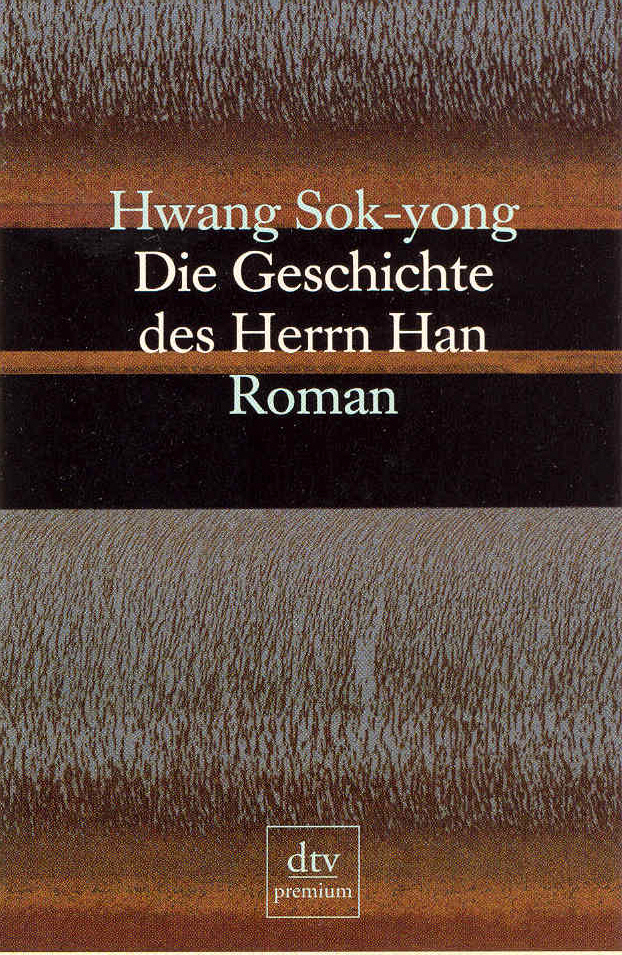
Fiction소설 | 한씨 연대기(前 한국문학 번역지원사업 지원) Die Geschichte des Herrn Han
저자 황석영 ㅣ 역자 강승희,오동식,Torsten Zaiak토르스텐 차이악
출판사 Germany독일 데테파우(dtv) ㅣ 출판일 2005(2001 지원)
Die Geschichte des Herrn Han (The Story of Mr. Han)
Hwang Sok-Yong(Author)/ Kang Seung-Hee, Oh Dong-Sik, Torsten Zaiak (Translators)/Germany: dtv ,2005
This is a work which has been acclaimed for superbly describing the unique situation of Korea as a divided nation and the problems of humanity by way of the individual life of the main character, Han Young-Dok. It is a record of the sacrifices of a simple individual before and after the Korean War and in a divided Korea. As such, the novel is not an attempt to see through the situation of national division itself, but rather to confront the humanity of the main character, Han Young-Dok. It was adapted as a stage play and became even more widely known as a result. -
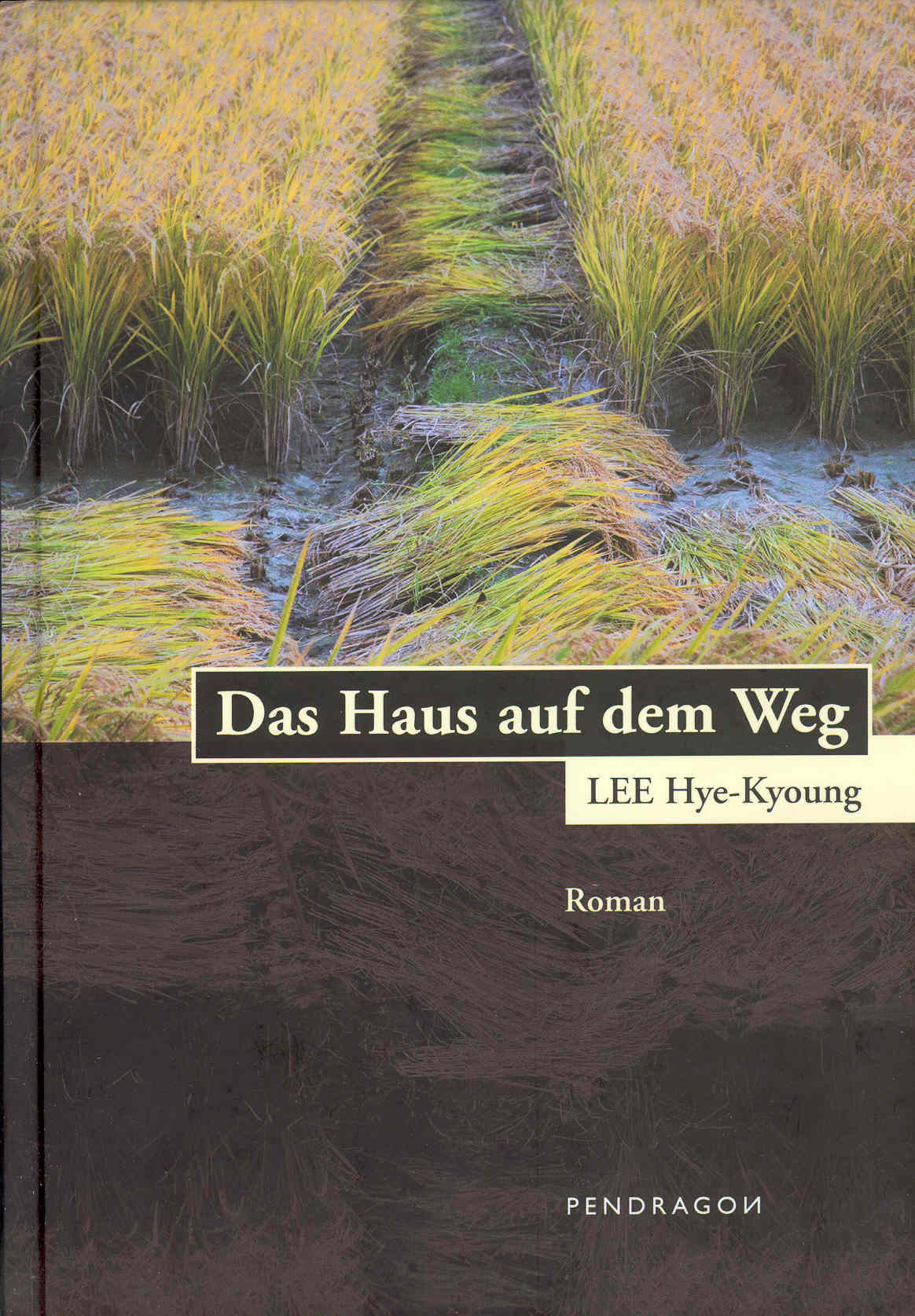
Fiction소설 | 길 위의 집(前 한국문학 번역지원사업 지원) Das Haus auf dem Weg
저자 이혜경 ㅣ 역자 Cristina Youn Arnoldi 일숙
출판사 Germany독일 펜드라곤(Pendragon) ㅣ 출판일 2006(2004 지원)
삶의 슬픔을 껴안는 여성적 시선, 이혜경 문학 세계의 대표작. 1995 <오늘의 작가상>, 2004 독일 <리베라투르상> 수상작. 리베라투르상은 1987년 프랑크푸르트의 그리스도교회 세계교회센터가 아시아,아프리카, 라틴아메리카의 문학을 독일 독자들에게 알리기 위해 제정했다. 리베라투르상 장려상은 전년도 본상 수상자가 추천한 작품을 심사해 선정한다. 이씨의 작품은 지난해 장편소설 ‘새’로 제16회 리베라투르상 본상을 수상한 소설가 오정희씨가 추천했다. ‘길 위의 집’은 붕괴위기에 빠진 가족관계를 그린 장편소설이며, 독일에 거주하는 크리스티나 윤·아르놀디(한국명 윤일숙)가 번역했다. 작가는 작품이 번역돼 독일어권 독자들에게 읽힐 수 있다는 것이 상을 받는 것보다 더 기쁘다며 그동안 주로 써오던 가족과 여성문제 중심에서 벗어나 새로운 작품을 시도하려고 노력했다고 전했다.
Das Haus auf dem Weg (The House on the Road)
Lee Hye-Kyong(Author)/Cristina Youn Arnoldi(Translator)/Germany: Pendragon
This novel reflects the state of contemporary Korea by way of the fate of one family going to ruin. The violent father who reigns over his family and the ever-quiet wife, the four sons who each strive in their own way to kick free of their father’s fetters, and the passive, introverted daughter who helps her mother with the housework. The author writes of each character’s individual situation and the wounds that have been inflicted upon them in a economical prose which admits no superfluity. This novel was awarded the Liberaturpreis honorable mention in 2004. -
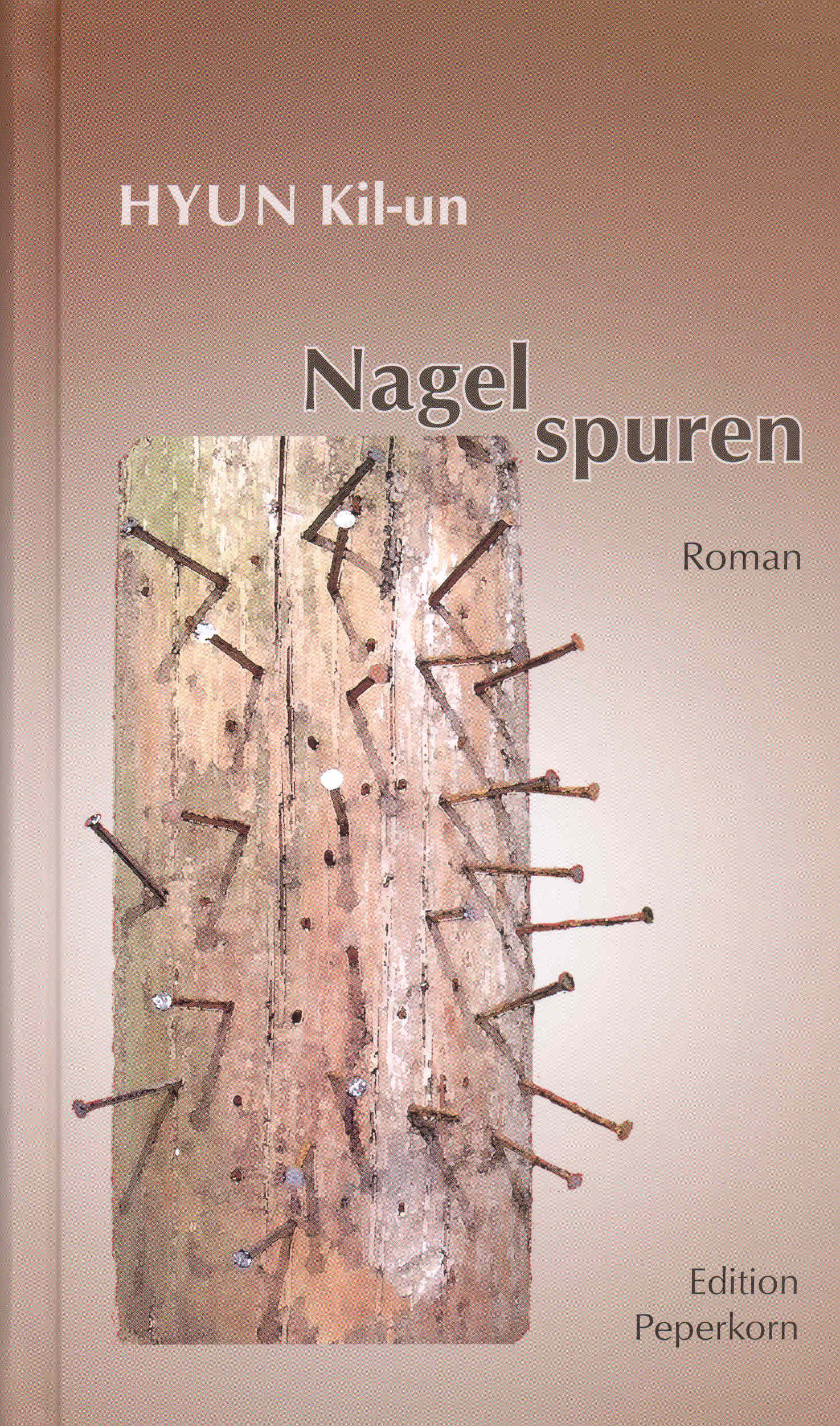
Fiction소설 | 못자국(前 한국문학 번역지원사업 지원) Nagelspuren
저자 현길언 ㅣ 역자 김희열, Kirstin Grönitz키르스틴 그뢰니츠
출판사 Germany독일 페퍼코른(Peperkorn) ㅣ 출판일 2006(2004 지원)
못자국 Nagelspuren
현길언 作/ 김희열,키르스틴 그뢰니츠 共譯/ 독일 Peperkorn 刊
제주 출신 소설가로 제주를 배경으로 일어났던 현대사의 비극적 사건에 평생 관심을 기울여 온 현길언의 소설이다. 일제 말엽부터 6·25전쟁까지를 시대적 배경으로 작가 자신의 직간접적인 경험이 생생하게 반영돼 있는 작품인데, 역사 혹은 이데올로기라는 이름에 희생되는 개인의 비극을 탁월하게 묘사하고 있다. 원래 이 소설은 3부작 각 단행본으로 2001년부터 2003년 사이에 청소년용으로 발간된 것인데 작가는 이번 번역을 위해 3권을 한데 묶고 내용을 일부 수정하여 별도의 단행본 텍스트를 마련하였다. 번역은 제주대 독문과 교수이자 교무처장으로 있는 김희열 교수와 역시 제주대 강사를 지낸 바 있는 재독 번역가 키르스텐 그뢰니츠의 공역으로 진행되었다. 한국 현대사와 비슷한 아픔을 공유하고 있는 독일인들에게 미치는 정서적 호소력이 클 것으로 예상된다.
Nagelspuren (Nail Mark)
Hyun Kil-Eon(Author)/Kim Hiyoul, Kristin Gronitz(Translators)/Germany: Peperkorn
This book presents Jeju Island during the Korean War through the image of eleven year boy, Sae-cheol. The novel paints a realistic portrait of how the war changed the lives of children, as seen through Sae-chol’s difficulties. He deals with the children who’ve moved to his school as their families sought refuge in Jeju from the war, and look down on the school as a “country school,” his older brother who goes off to war and comes back having lost a leg, and other wartime experiences. This is a kind of coming of age novel which uses the Korean War, Jeju’s April 3rd Incident, which was caused by the conflict between left and right, etc., to examine and affirm the essence of life. -
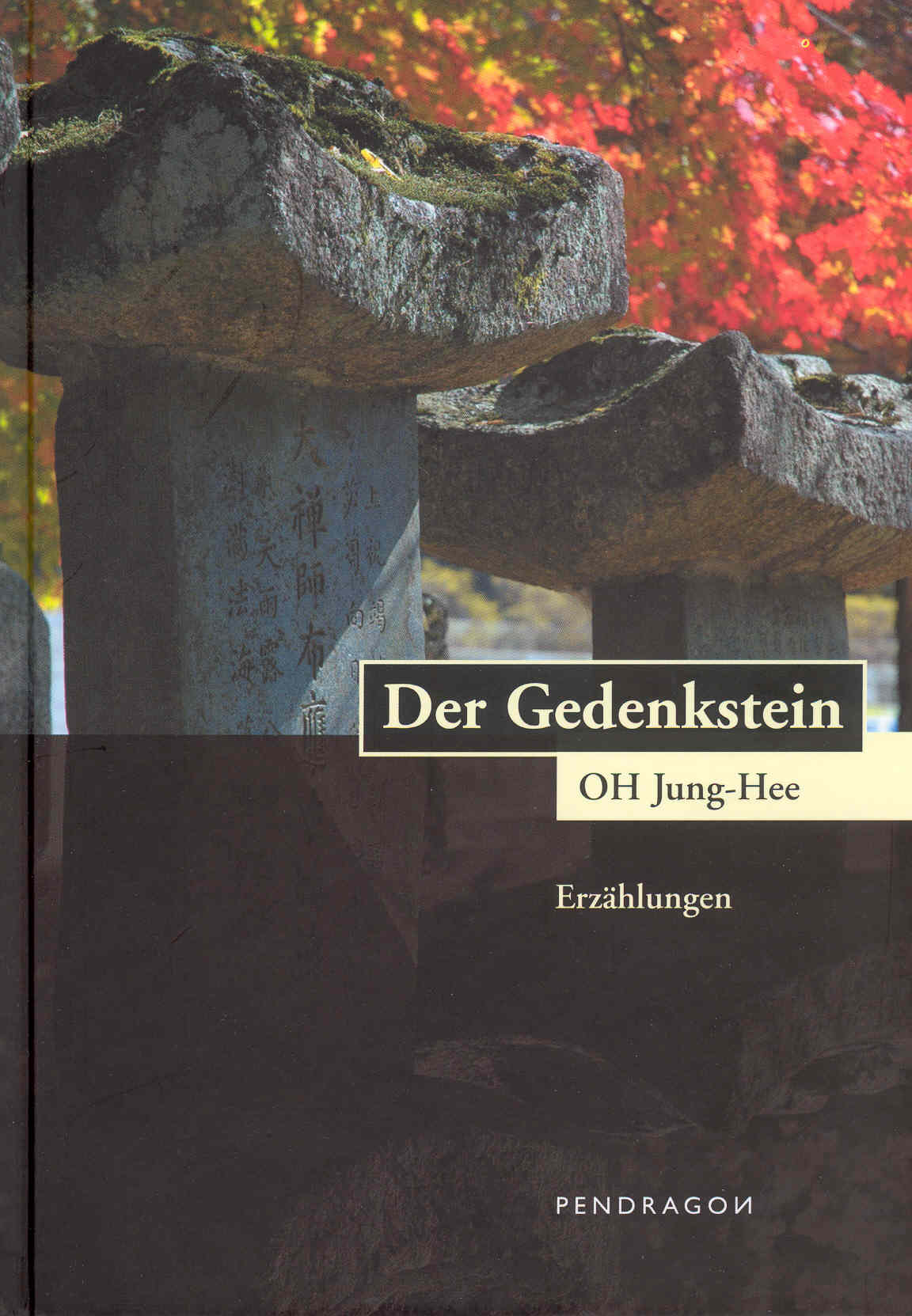
Fiction소설 | 불망비(前 한국문학 번역지원사업 지원) Der Gedenkstein
저자 오정희 ㅣ 역자 김선희, Edeltrud Kim김에델
출판사 Germany독일 펜드라곤(Pendragon) ㅣ 출판일 2006(2004 지원)
불망비 Der Gedenkstein
오정희 作/ 김선희·김 에델트루트 共譯/ 독일 Pendragon 刊
장편소설 『Voegel새』로 리베라투르 문학상을 받는 등 이미 독일에 일정한 독자를 확보하고 있는 오정희의 중단편 3편이 묶여 독일어로 번역, 출간되었다. 표제작인 「불망비」를 비롯 「불꽃놀이」와 「옛우물」은 작가의 희망에 따라 한권으로 묶인 것이다. 오정희 특유의 섬세한 묘사와 서정성 넘치는 문체가 돋보이는 작품들이다. 『V쉍el 새』를 번역한 바 있는 역자 김선희·김 에델트루트 콤비는 이번 작품을 포함, 앞으로도 오정희의 소설을 계속 독일어로 번역, 출간할 계획을 갖고 있다. 오정희의 소설은 독일어 뿐 아니라 불어, 영어 등으로도 번역돼 유럽 독자들에게 호평을 받고 있다. 2004년 지원.
Der Gedenkstein (Playing with Fire)
Oh Jung-Hee(Author)/Kim Sun-Hi, Edeltrud Kim(Translators)/Germany: Pendragon
This is a collection of fiction by an author who is receiving attention in Germany after having won the Liberaturpreis Award in 2003. The collection includes three novellas: Fireworks, Unforgettable Tombstone, and Ancient Well. The main characters in Jeong-hee Oh’s works live every second of their lives consciously and observantly. Their attitude of never turning their backs on their inner voices, and always trying their best in the circumstances in which they find themselves sometimes shows itself in cruel actions, and sometimes comes out in a longing for the outside world and incessant departures. The aesthetic of language in this work has been recognized as the most beautiful and sad a Korean woman is capable of producing. -
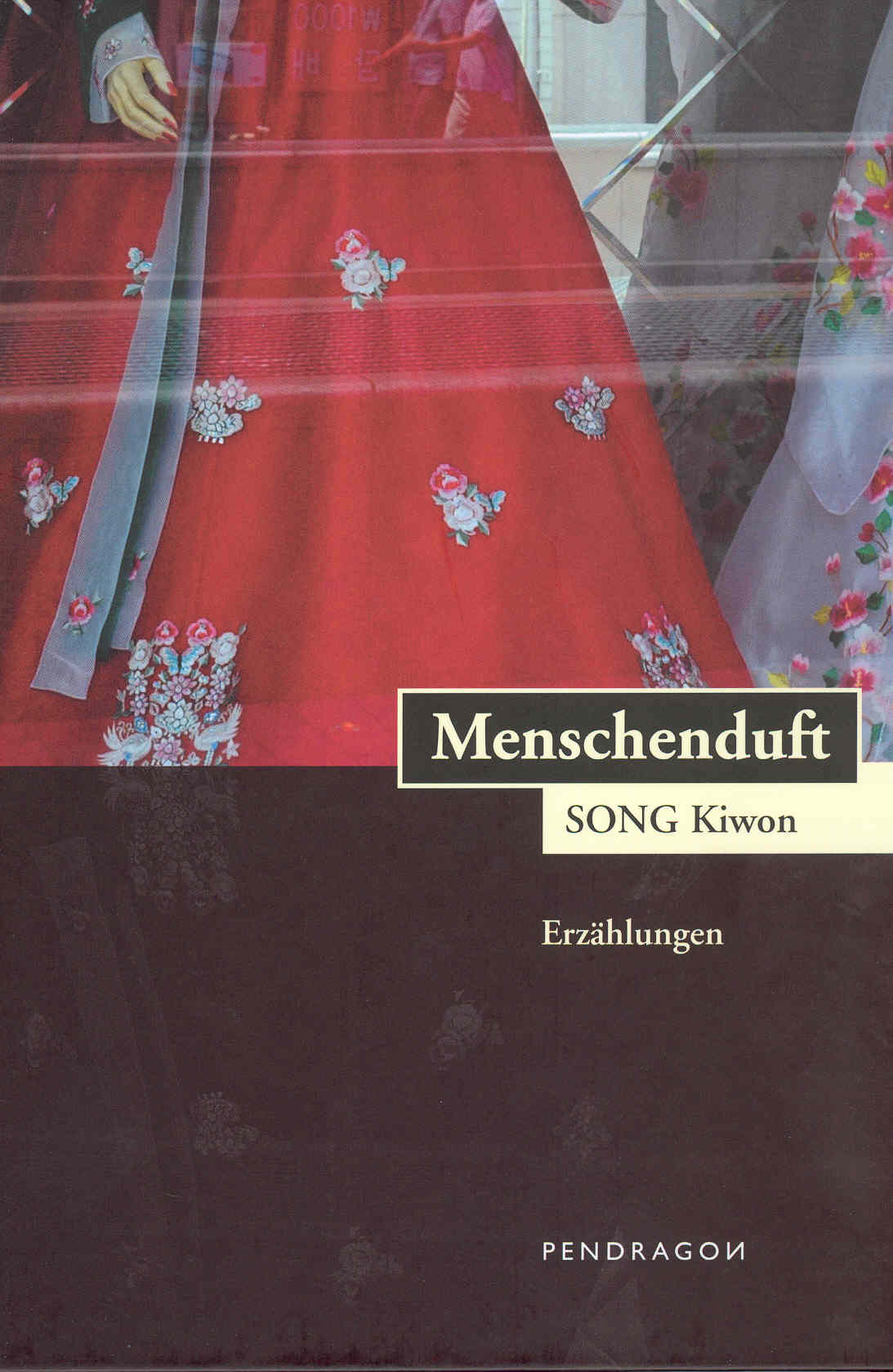
Fiction소설 | 사람의 향기(前 한국문학 번역지원사업 지원) Menschenduft
저자 송기원 ㅣ 역자 정민기,Stefan Straub스테판 스트라우프
출판사 Germany독일 펜드라곤(Pendragon) ㅣ 출판일 2006(2004 지원)
작가 송기원은 동아일보 신춘문예에 시 <회복기의 노래>가 함께 당선되어 화려하게 문단에 나왔으며, 이후 예리한 현실인식과 탐미적 감수성을 보여주는 작품세계를 펼쳐왔다. 대산문학상 제 11회 수상작이기도 한 <사람의 향기>는 한층 성숙한 경지에 접어든 송기원의 문학적 역량이 곳곳에 배어 있다. 연작소설집『사람의 향기』는 작가 자신의 고단한 가족사와 고향 사람들에 관한 기억을 감칠맛 나는 필치로 그려내 2003년 대산문학상을 수상한 바 있는 송기원의 대표작이다. 이 소설은 현재와 과거, 꿈과 현실을 오가는 노련하고 세밀한 글쓰기 기법으로 장님, 거지 또는 장타령꾼과 같은 가난하고 소외된 시골 사람들의 여정을 마치 밀랍인형 박물관을 관람하게 하듯 엮어내고 있다. 쇠락해가는 한국 농촌의 세밀화로서의 이 소설에 대한 관심은 시골 장터의 희비극적 분망함과 미신, 조상숭배, 샤머니즘 그리고 유교적 위계질서가 중요한 역할을 하는 시골의 뒤엉킨 인생살이를 철저히 그려냄으로서 경제성장을 통해 도시와 시골의 극단적인 변화의 낙차를 겪은 전통적 한국의 삶에 냉철한 작별의 노래를 부르고 있다.
Scent of a Person
Song Ki-Won(Author)/Jung Min-Ki, Stefan Strab(Translators)/Germany: Pendragon
The nine short stories of Scent of a Person are filled with the author’s trying family history as well as the hardships of the lives of the people of his hometown. One can surmise that through his pained confessions and his tear-stained self-examinations author Song Ki-Won has realized the fundamental beauty of living things. This collection of short stories, which is steeped in the literary talent of a matured Song Ki-won, was an 11th Daesan Literary Awards winner. -
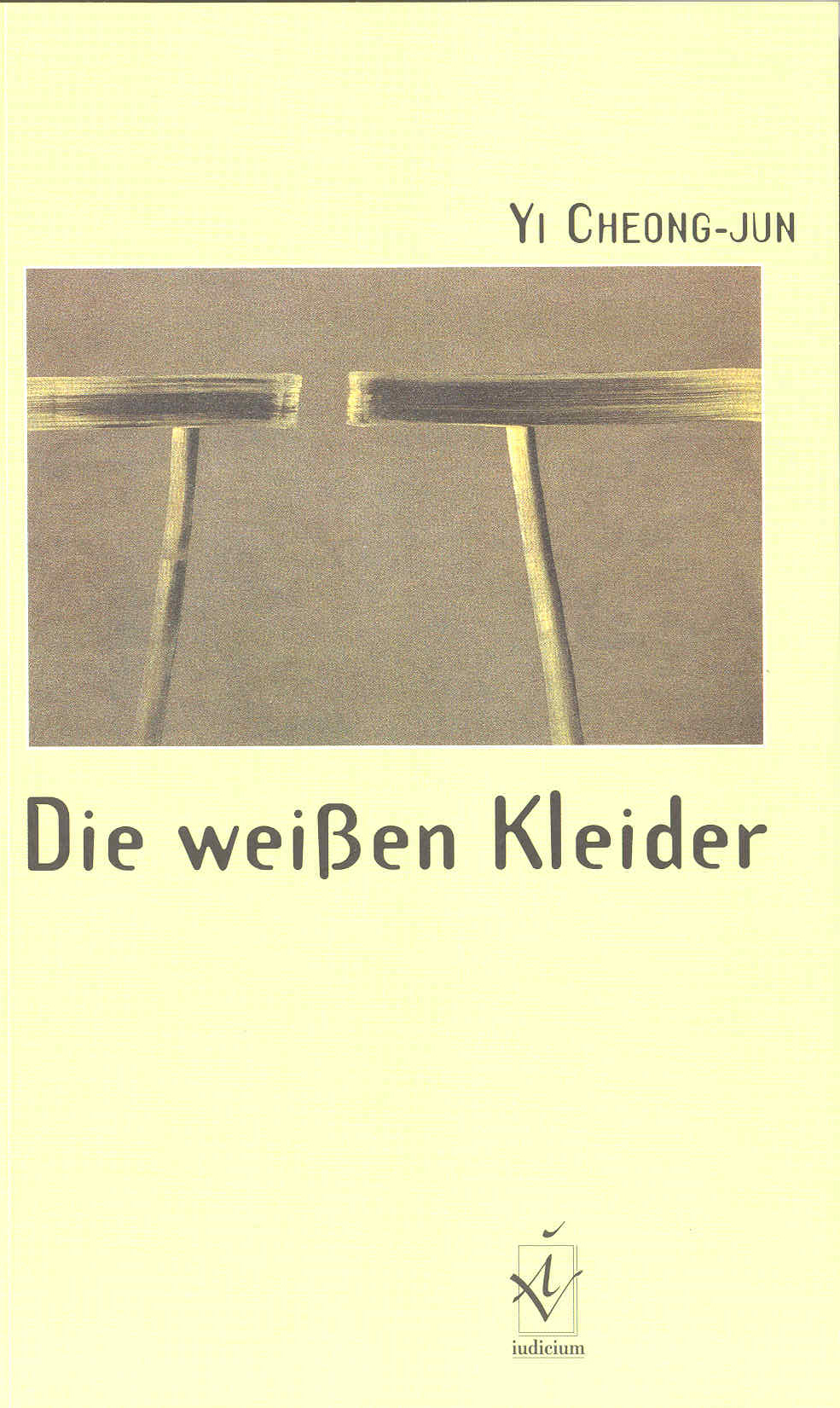
Fiction소설 | 흰 옷(前 한국문학 번역지원사업 지원) Das Weiße Kleider
저자 이청준 ㅣ 역자 양귀분, Wolfgang Schibel볼프강 쉬벨
출판사 Germany독일 유디치움(Iudicium) ㅣ 출판일 2005(2003 지원)
흰옷 Das weißen Kleider
이청준 作/ 양귀분,볼프강 쉬벨 共譯/ 독일 Iudicium 刊
우리 시대를 대표하는 소설가 이청준의 장편소설이 독일어로 번역되었다. 분단 상황의 대립과 갈등을 따뜻하고 아름다운 정서로 풀어낸 이청준 문학의 진수인 『흰옷』은 해방 이후 이념의 대립이 극심하던 때를 배경으로 하여 숙명처럼 제 삶의 상처를 떠안은 과정과 해원을 보여주고 있다. 제2회 대산문학상 수상작으로 프랑스의 악트 쉬드(Acte Sud)사에서 ‘한국문학총서’의 첫 작품으로 소개한 소설이기도 하다. 2003년 지원.
Das weiße kleid (White Clothes)
Yi Chong-Jun(Author)/ Gwi-Bun Schibel-Yang, Wolfgang Schibel(Translators)/Germany: Iudicium ,2005
This is a novel by Yi Chong-Jun, a novelist who represents our contemporary age. It contains the peculiar recollections of Hwang Jong-Seon of the school which he attended as a young child. Jeon Jeong-Ok, a female teacher, teaches the children many songs with the organ which was brought by Lee Yeol, the handsome but hard-hearted principal of this temporary school. The conflict between those on the left and right intensifies, and Ms. Jeon ardently teaches the children both patriotic and revolutionary songs. But one day, the principal, the female teacher, and even the organ disappear. The work is a 2nd Daesan Literary Awards winner. -
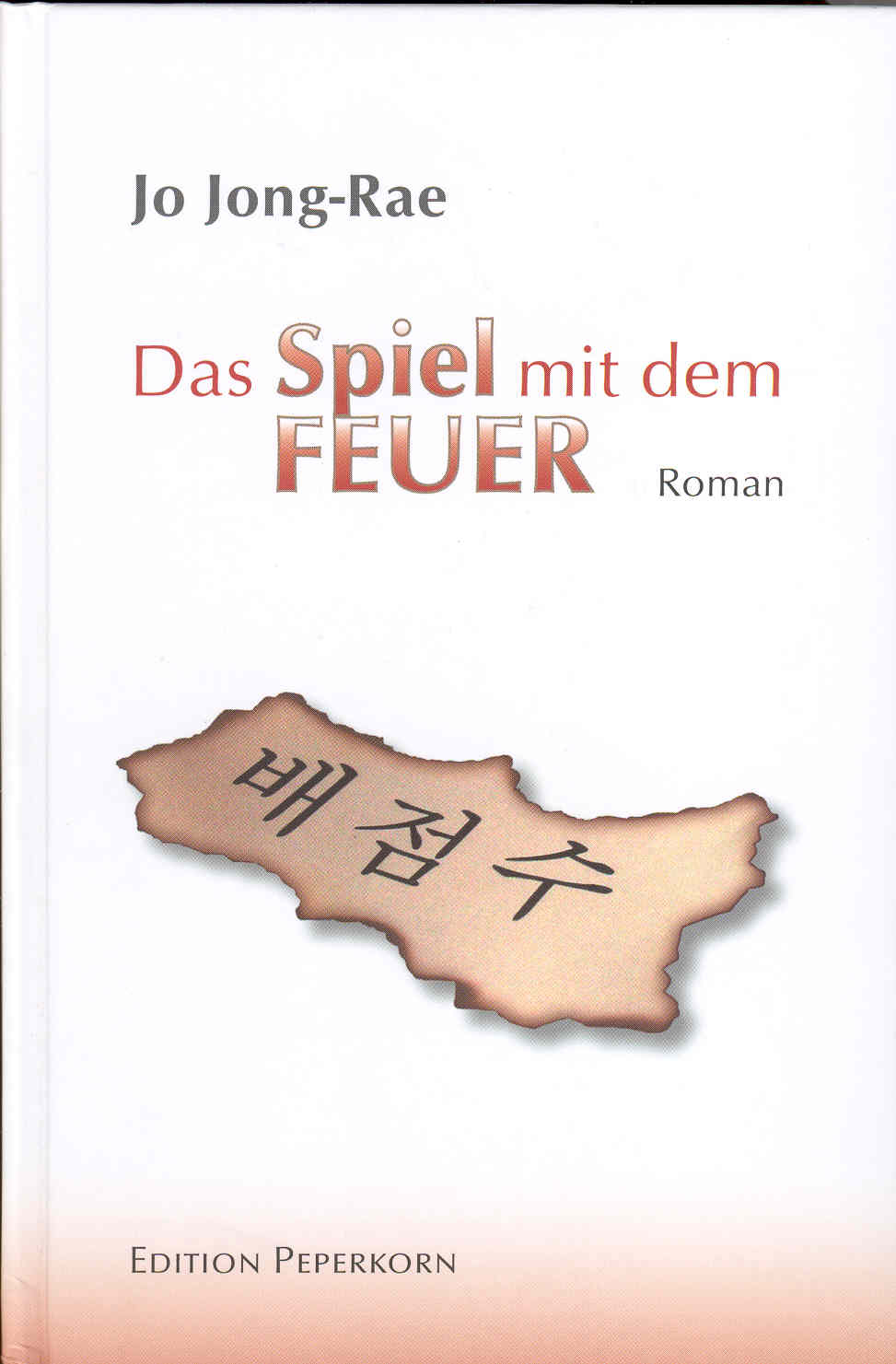
Fiction소설 | 불놀이(前 한국문학 번역지원사업 지원) Das Spiel mit dem Feuer
저자 조정래 ㅣ 역자 이기향, Martin Herbst마르틴 헤릅스트
출판사 Germany독일 페퍼코른(Peperkorn) ㅣ 출판일 2006(2003 지원)
불놀이 Das Spiel mit dem Feuer
조정래 作/ 이기향·마르틴 헤릅스트 譯/ 독일 Peperkorn 刊
한 인터넷 포털사이트에서 실시한 한국에서 노벨문학상을 받을 만한 작가 투표에서 1위를 차지한 조정래의 연작 장편소설이다. 한국전쟁 중 인민위원회 부위원장을 지내며 학살의 중심에 있었던 주인공이 휴전 후 이름과 고향, 얼굴마저 바꾸고 살아가지만 결국 참담하고 파멸적인 결말을 맞는다는 내용이다. 문학적 자양분과 원천의 대부분을 역사적 사실에서 찾는 조정래 문학의 특색과 작가의 역사관을 잘 보여주는 초기의 대표작이다.『불놀이』는 이번 출판을 통해 원작자의 『유형의 땅』과 더불어 영어, 불어 그리고 독일어로 소개되게 되었다. 2003년 지원.
Spiel mit dem Feuer (Playing With Fire)
Jo Jung-Rae(Author)/Lee Ki-Hyang, Martin Herbst(Translator)/ Germany: Peperkorn
Company president Hwang Bok-Man, who’d made a lot of money over the course of his life, receives a phone call from Shin Chan-Kyu Shin and is seized with fear. The fact that twenty-nine years ago, during the war, he’d been the vice-president of the Hui-jeong Village Community Council and was responsible for a massacre involving 38 people, is revealed. This series of fiction starts with Practicing to be Human and finishes with Tower of Humanity. With Tae-baek Mountain Range, Arilang, and Han River, which stand at the apex of the literature of national division, Jeong-rae Jo is recognized for having treated the problem of national division most directly and with the greatest depth. -

Fiction소설 | 유형의 땅(前 한국문학 번역지원사업 지원) Land der Verbannung
저자 조정래 ㅣ 역자 이기향, Martin Herbst마르틴 헤릅스트
출판사 Germany독일 페퍼코른(Peperkorn) ㅣ 출판일 2004(2003 지원)
유형의 땅 Land der Verbannung
조정래 作/ 이기향,마르틴 헤릅스트 共譯/ 독일 페퍼코른(Peperkorn) 刊
분단의 상처가 가져다주는 인간 현실의 고통스런 단면을 그리고 있는 조정래의 독어판 소설이다. 여기에서 ‘땅’이라는 상징적인 제명(題名)은 바로 민족과 국토의 분단으로 인한 한 인간의 삶의 파탄을 그려내면서 인간의 원초적 생존을 지탱해 주는 영원성과 모태성, 동질성 회복의 의도적 표현으로 볼 수 있다. 따라서 이 작품은 분단 역사의 비극을 그리면서 시대 변화에 따른 삶의 파멸에 이르는 주인공 만석을 통하여 생존 욕구와 우리 사회의 분단 현실에 대한 내적 원인을 파헤치려는 의도를 담고 있다. 『유형의 땅』은 원작자의 『불놀이』와 더불어 영어와 불어로 번역되어 소개되었다. 이번 『유형의 땅』 번역팀 또한 『불놀이』의 독일 출판을 위해 번역작업을 진행 중이며, 2005년에 같은 출판사를 통해 출판될 예정이다. 2003년 지원
Land der Verbannung (Land of Exile)
Jo Jung-Rae(Author)/ Lee Ki-Hyang, Martin Herbst (Translator)/ Germany:Peperkorn,2004
This book depicts a painful aspect of human reality resulting from Korea’s national division. The symbolic title, “Land: can here be read as an intentional expression where, by portraying a life torn by the division of country and of its people, the word signifies a restoration of the elements sustaining primordial life: the eternal, the maternal, and the homogenous. This novel paints the tragedy of the history of national division through the protagonist Man-Seok, who is destroyed by the change of times. Further, Jo purposes to expose the internal forces behind the desire for survival as well as those involved in the reality of the partitioning of Korea. -
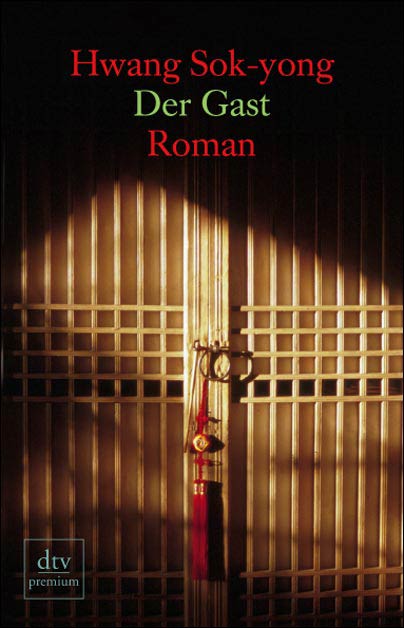
Fiction소설 | 손님(前 한국문학 번역지원사업 지원)
저자 황석영 ㅣ 역자 이영, Katrin Mensing카트린 멘징
출판사 Germany독일 데테파우(dtv) ㅣ 출판일 2006(2002 지원)
『손님』은 잘 알려져 있다시피 황해도 진지노귀 굿 12마당의 기본 얼개를 차용하여 12개 의 장으로 구성되어 있으며, ‘신천 대학살’ 때 죽은 영혼을 위무하는 마지막 12장은 굿의 사설을 직접적으로 인용하고 있다.이미 서구 문단에서 그 역량을 인정받은 바 있는 황석영 소설의 탄탄한 문학성과 함께 기독교와 마르크시즘의 갈등, 분단국가에서 일어난 동족상잔의 비극과 같은 작품의 주된 내용이 비슷한 아픔을 경험한 바 있는 독일 독자들에게 커다란 호소력을 발휘할 것으로 기대된다. 1950년 기독교도와 공산주의자 간의 첨예한 갈등 속에 일어난 황해도 신천 대학살사건을 배경으로 하고 있는 『손님』은 2001년 대산문학상을 수상하며 21세기 한국문학의 고전 반열에 올라선 작품이다. 황석영의 소설로는 『Der Ferne Garten 오래된 정원』과 『Die Geschichte des Herrn Han 한씨연대기』가 지난 2005년 역시 dtv에서 발간된 바 있는데, 이번 『손님』의 호평으로 이들 작품이 시너지 효과를 일으켜 한국을 대표하는 큰 작가라는 황석영에 대한 유럽 문단의 평가가 더욱 공고해지는 것을 물론이고, 유럽 독자들의 한국 소설 전반에 대한 인지도와 관심도가 상승하는 긍정적인 반응을 불러일으킬 것으로 기대된다.
Der Gast(The Guest)
Hwang Seok-Young(Author)/ Lie Young, Katrin Mensing(Translator)/ Germany:DTV
This recipient of the Ninth Daesan Literary Awards founds its story on th Sinchon massacre of innocents by some Christians during the Korean War. Hwang unfolds the stories of the slaughterers, the slaughtered, the witnesses, and the people who tell the tale, adapting a more daring and exuberant realism: each vision, view, and opinion crossesover in a multidimensional manner. It is said that the author used the 12 scenes of Hwanghaedo Jinninogui Kut (Shamanistic ritual for the dead in Hwanghaedo) as a framework: Indeed, 12 chapters make up this novel, and chapter 8 marks the climax, demonstrating the author’s brilliance and skill in translating narrative into rhythm. -

Drama희곡 | 연산 (이윤택 희곡집) (前 한국문학 번역지원사업 지원) Konig Jonsan
저자 이윤택 ㅣ 역자 김미혜
출판사 Germany독일 Theatre der Zeit ㅣ 출판일 2003 (2002 지원)
연산 König Jònsan
이윤택 作/ 김미혜 譯/ 독일 Theatre der Zeit 刊
이미 독일에서 한국의 연출가로 잘 알려진 이윤택씨의 「문제적 인간 - 연산」, 「오구 - 죽음의 형식」, 「시골선비 조남명」 등 세 편의 희곡이 번역, 수록되어 있다. 독일 유수의 연극전문출판사인 시어터데차이트(Theater der Zeit)에서 신진 및 해외의 희곡작가 소개를 위한 발행하는 디알로그 시리즈(Reihe Dialog)의 제 3권으로 출판되었으며 페이퍼백으로 총 1백40쪽이다. 이 책의 출판을 계기로 이윤택씨는 지난 4월 열린 제 40회 베를린연극제에서 독일의 배우 및 학생을 대상으로 「문제적 인간 - 연산」의 독일어 리딩 시간을 가졌으며, 현지에서 한국적 전통과 특성이 묻어나는 이윤택씨의 희곡에 매우 큰 관심을 보이는 등 해외에서 이윤택의 연극이 현지 언어로 무대화될 가능성을 열어준 것으로 평가받고 있다. 2002년 지원.
König Jònsan(King Yeosan)
Lee Youn-Taek (Author)/ Kim Miy-He (Translators)/ Germany: Theatre der Zeit, 2003
Three plays, Problematic Person: Yonsan, Ogu: Mode of Death and Provincial Gentleman Cho Nam-Myung by Korea’s most loved and acclaimed playwright and stage producer Lee Yun-Taek, finds German readers owing to distinguished German theatre-expert press Theatre der Zeit’s new ‘Reihe Dialog.’ Planned to promote new and overseas playwrights, Konig Jonsan, with 140 pages, is the third in the collection. Already renowned in Germany as a popular Korean producer, Lee Yun-Taek took the opportunity provided by the publication of this book to employ it in a workshop at the Fortieth Berlin Drama Festival.
